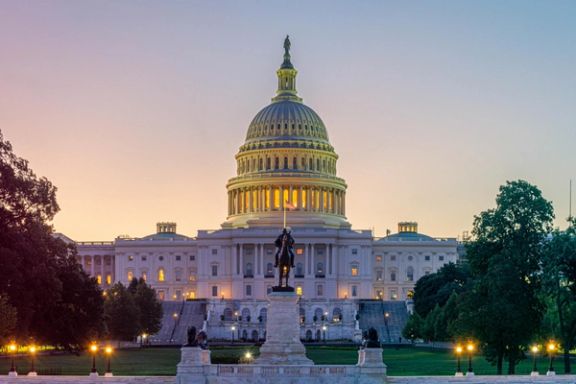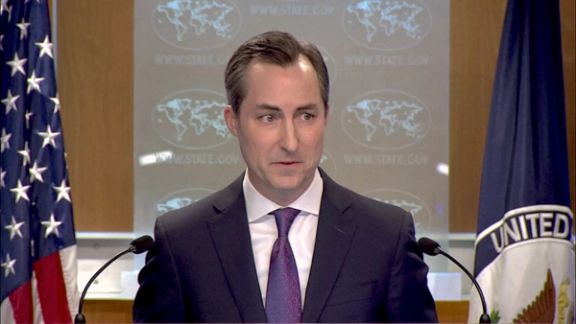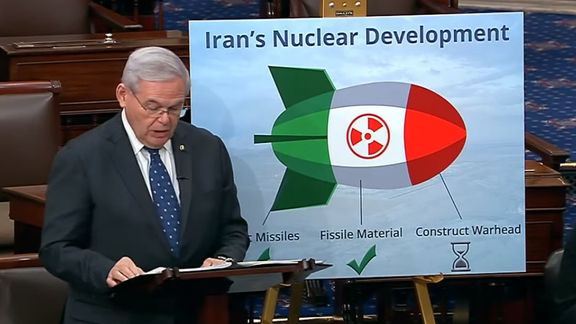As US Denies Any Deals With Iran, Congress Begins To Push Back

As US State Department once again denied any deals with Iran despite reports of many contacts, US lawmakers became vocal about any attempts to circumvent Congress.

As US State Department once again denied any deals with Iran despite reports of many contacts, US lawmakers became vocal about any attempts to circumvent Congress.
The State Department spokesperson Matthew Miller in his press briefing on Thursday responded to questions by reporters about a possible deal in the making, saying, “with respect to Iran’s nuclear program, there is no deal.“
But the fact remains that the Biden administration has had even direct talks with Iranian diplomats for the past 7-8 months according to multiple reports, in addition to talks mediated by Oman and others.
Also, Washington agreed to the release of $2.7 billion of Iran’s money frozen in Iraq for “humanitarian” purposes. Some argue that no matter what the formal label of the arrangement may be any funds Iran can use for imports alleviates financial pressure from the cash-strapped regime.

Given these concerns both Republicans and Democrats in Congress have begun stirring to make sure that the administration does not circumvent the lawmakers and according to law informs them of any deals with Iran.
"I'm extremely disappointed. To think this will end their uranium enrichment is childish. They'll continue to act in bad ways. When Iran is selling oil that it shouldn't, it gets those dollars and pumps it right back to extremist organizations," Sen. Joni Ernst told Iran International's Arash Aalaei.
The House Foreign Affairs Committee Chairman Rep. Michael McCaul sent a letter to President Joe Biden on Thursday saying, “I am disturbed by recent revelations that the Administration has re-engaged in “proximity talks” with the Iranian regime, and that the results of these discussions have included the apparent greenlighting of sizable payments to Iran.“
McCaul urged Biden to respect the Iran Nuclear Agreement Review Act of 2015 (INARA), which was enacted during the finalization of the Joint Comprehensive Plan of Action (JCPOA) in 2015 to allow Congress to oversee dealings with Tehran. The Obama administration decided not to make the JCPOA nuclear deal a treaty, given opposition in Congress at the time and agreed to INARA to neutralize opposition among lawmakers.
“I urge the Administration to remember that U.S. law requires that any agreement, arrangement, or understanding with Iran needs to be submitted to Congress pursuant to INARA. Any continued obstruction will rob the American people, and in particular the Gold Star families whose loved ones were killed by Iran-backed terrorism, of answers about why the United States is facilitating the lining of Iran’s coffers,” McCaul said.
The Jewish insider reported Thursday that Senator Lindsay Graham (R-SC), joined by Bob Menendez (D-NJ) and Sen. Richard Blumenthal (D-CT), also introduced legislation on Wednesday that would require the director of National Intelligence to notify Congress within 48 hours if Iran produces or possesses uranium of greater than 60 percent purity.

The Iranian Enrichment Monitoring Act is a new attempt led by Graham, Menedez and other lawmakers to ensure congressional oversight of how the executive branch deals with Iran’s nuclear program.
The website also quoted several senators, some supporters of the JCPOA voicing concern about secret dealings with Iran and releasing funds to the Iranian régime that continues its „malign activities“ in the region and sending arms to Russia.
State Department’s spokesperson Thursday more clearly listed what the administration seeks in its dealings with Iran.
"Number one, we want Iran to take steps to de-escalate tensions, which of course includes steps to curb its nuclear program," Miller said, and added that Iran should cease its actions that destabilize the Middle East.
"Number three, we want Iran to stop its support for Russia’s war on Ukraine,“ he said, referring to a new complication with Iran that emerged in mid-2022. He also demanded the release of US citizens Tehran has imprisoned „for political leverage."